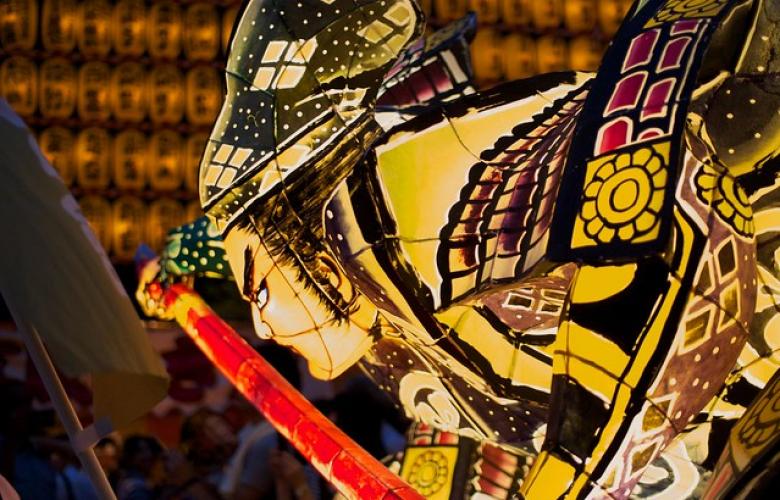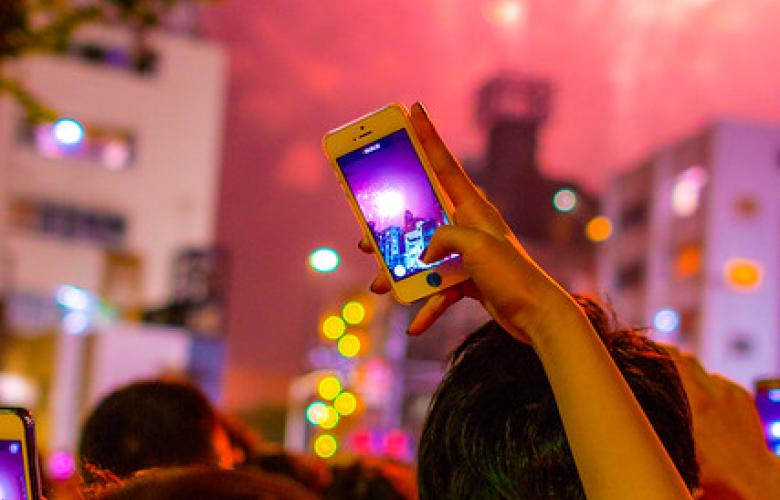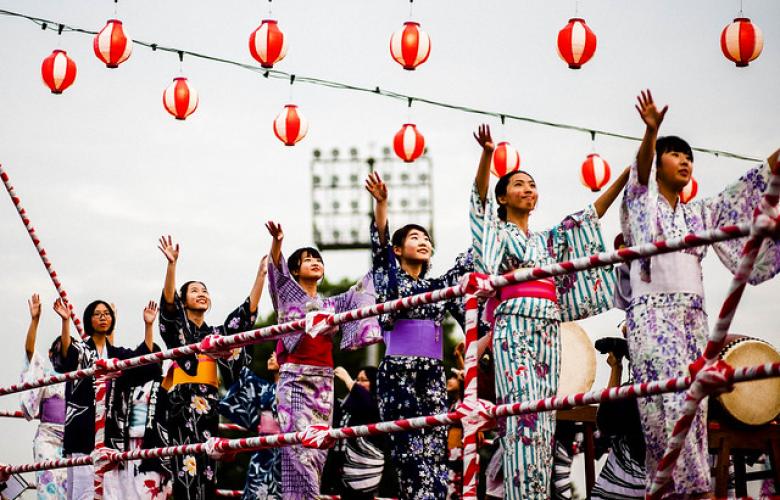One of the best aspects of life in Tokyo is that the city seems simultaneously rooted in the future and in the past. Traditional Japanese culture is an important part of the lifestyle — and a great way to get involved is to join one of the many festivals that take place during summer. Here are our top recommendations with dates and locations. All of them are free of charge.
July
July 13-14: Setagaya Firefly Festival
This local festival is held in a small garden in Setagaya Ward. Don’t expect too many other foreigners here. It is best to join around nightfall when the glow of the fireflies comes to life. The festival extends over several small alleys and a cage with fireflies is set around every bend, adding a truly magical touch. The festival has a market alley lined with stalls of Japanese street foods like yakisoba, yakitori skewers, and of course ice cold beers. From there, make your way to the main stage and watch the bon odori, a traditional summer dance performed to the rhythmic beating of taiko drums while the visitors dressed in yukata follow the dancers' graceful movements. Entrance is free.
Hours: 1 pm to 9 pm
Venue: Setagaya Daikan-yashiki, Uemachi Tenso Shrine (1-23-18 Setagaya , Setagaya-ku, Tokyo)
Website: https://matsuri-no-hi.com/matsuri/2019/1977
July 13-16: Yasukuni Shrine Mitama Matsuri
This event is one of Tokyo’s most impressive summer festivals—held at the city's most controversial shrine. More than 30,000 lanterns are lit along the path towards the shrine, creating a haunting atmosphere after dark. The lanterns celebrate ancestors, but the spirit of the festival is actually quite joyful. In addition to the lanterns, there will be performance art, portable shrines, colourful floats and a bon festival dance. While the souls of one's ancestors may seem like an odd reason for a grand celebration, it is very much part of the Japanese summer festival tradition.
Hours: 6 pm to 9:30 pm
Venue: Yasukuni Shrine (3-1-1 Kudankita, Chiyoda City, Tokyo 102-8246, Japan)
Website: https://www.yasukuni.or.jp/schedule/saiji.html
July 27: Shinjuku Eisa Festival
This festival centres on performances and parades of dancers performing eisa, a traditional dance from Okinawa. The festival takes place around Shinjuku Station’s East and West exits. While it is a great spectacle, it lacks the local atmosphere found at festivals held in smaller locations like a shrine.
Hours: 12 pm to 8 pm
Venue: Shinjuku Station (East and West exits of the main building)
Website: http://www.shinjuku-eisa.com/
July 27: Sumida River Fireworks Festival
Home to one of Japan’s largest hanabi taikai (firework festivals), the Sumida River one attracts around 1 million visitors each year. It might be one to avoid if crowds aren’t your thing, but if you are looking for something big, enjoy the spectacle of 22,000 fireworks exploding in the night sky anywhere along the Sumida River banks between Asakusa and Kuramae stations.
Hours: 7 pm to 8:30 pm
Venue: Along Sumida River (between Asakusa Station and Kuramae Station)
Website: https://www.sumidagawa-hanabi.com/
August
July 31–August 3: Tsukiji Honganji Temple Bon Odori Festival
Held at the beginning of August is this large-scale and impressive bon odori festival. It takes place in a temple right next to the former Tsukiji fish market. Taiko drums and lantern decorations add to the atmosphere of dance performed on stage. Definitely join the ranks of dancers following the moves while slowly moving around the stage. Even if you stumble over some moves, everyone will generally be happy to see visitors from overseas partake in the fun.
Hours: 7 pm to 9 pm (6 pm to 8:30 pm on Saturdays)
Venue: Tsukiji Honganji Temple (3-15-1 Tsukiji, Chuo City, Tokyo 104-0045, Japan)
Website: https://tsukijihongwanji.jp/news
August 10-14 (TBC): Fukagawa Hachiman Festival
Fukagawa Hachiman Festival is one of Tokyo’s greatest festivals — but prepare to get wet. The festival goes on for several days. On the main day, Sunday, more than 50 mikoshi, portable shrines, are carried through the narrow streets of Koto Ward. In the summer heat, a wild water splash is part of the celebration, as visitors splash the shrine carriers with water. So be careful if you are bringing a camera! The dates are an estimation until the organisers confirm on their website.
Parade hours: 7:30 am to 3:30 pm
Venue: Around Tomioka Hachimangu Shrine (1-20-3 Tomioka, Koto City, Tokyo 135-0047, Japan)
Website: http://www.baynet.ne.jp/fukagawamatsuri/
24-25 August: Koenji Awaodori Festival
The Koenji Awadori Matsuri has been held for decades and is host to an impressive number of dance groups, with over 10,000 dancers performing over the weekend. Awadori is a traditional dance from Tokushima Prefecture and celebrated on the streets of Nakano Ward around Koenji Station. Lantern decorations, street stalls and the performances themselves draw around 1 million visitors each year, according to the organisers.
Hours: 5 pm to 8 pm
Venue: Around Koenji Station
Website: http://koenji-awaodori.com/
By Mareike Dornhege
Similar to this:
How to keep your home cool in the Japanese summer
Tokyo's best brunch spots
Six of Tokyo's best foodie neighbourhoods







